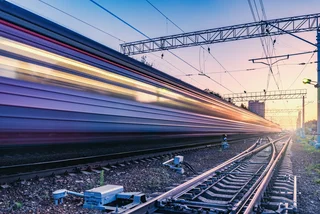State officials and local residents in the Czech Republic are eagerly awaiting a decision on the country’s first-ever high-speed rail line, which will connect major Czech cities with Germany. However, some residents near the proposed line voice objections about the disruption the new link may cause.
Ústí nad Labem to Dresden in 30 minutes
Estimated at around CZK 150 billion, the project aims to bring faster and more efficient transportation through Ústí nad Labem and Prague by connecting both cities with the German city of Dresden.
The new connection – which will allow trains to travel faster than 300 kilometers per hour – can shorten travel time from Ústí nad Labem to Prague or Dresden to just 30 minutes. Trains may also run on the line around every 10 minutes. The Railway Administration plans to complete the first 58 kilometers of the route within six years and aims to finish the rest of the line between 2038 and 2045.
However, with the late June deadline for finalizing all the details of the project coming up, concerns and opposition have arisen, threatening to derail the progress.
Cost, noise, construction worries
The proposed route has faced opposition from some residents, who have filed over 600 complaints, including calls for alternative routes. Objections have been raised about the potential risks and costs associated with the project. Residents of Ústí nad Labem, who will bear the brunt of most of the construction work, cite issues with noise and potential road- and traffic-related disruptions.
Other critics of the project say that – if it does eventually go ahead – the Railway Administration should create a high-quality architectural competition to find the best possible firm to create the new tracks and stations.
Transport Minister Martin Kupka insists that every effort is made to address the concerns and involve the community in decision-making. "We are trying to go through the planning sensitively and conduct a dialogue with local authorities. We are not putting it behind us," he says.
Despite concerns, state officials are determined to move forward with the project. Two working groups will address complaints and plan to broker a compromise between developers and residents.
However, the project will almost definitely go ahead. In November last year, Kupka said there was no longer any time to create any “big alternatives” and that moving the whole project a step further was necessary.












 Reading time: 2 minutes
Reading time: 2 minutes 























